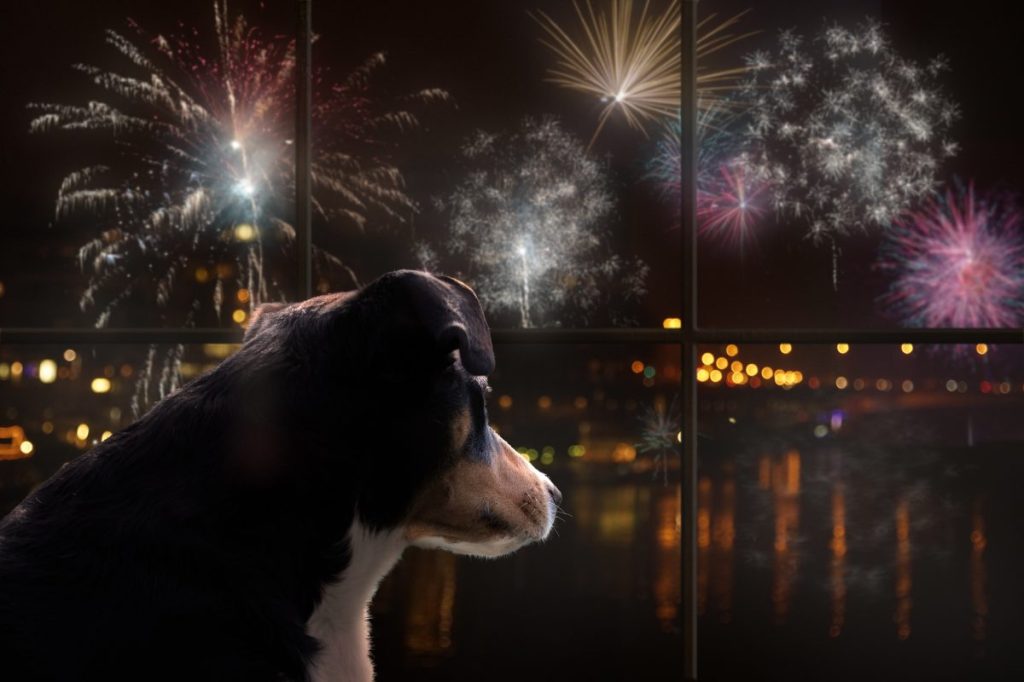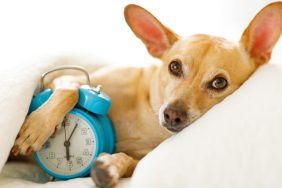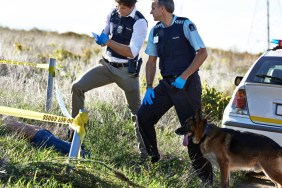During the Independence Day holiday, while we humans enjoy small-town parades, family barbecues, and late-night fireworks displays, thousands of pets all across the United States will be in a panic.
You see, Fido and Fluffy don’t understand that the “rockets red glare” and the “bombs bursting in air” on the 4th of July 4th are just humans’ idea of relatively harmless fun.
On July 4th, we encourage pet parents to remember that holiday fireworks are often at the center of pet injuries. As such, we should take proper measures to keep all dogs and cats safe as Americans celebrate our country’s birthday.
Dogs and fireworks: What could go wrong?
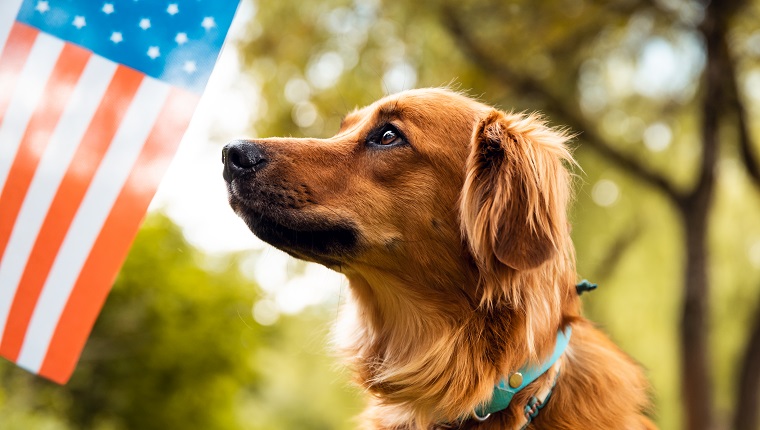
Fireworks can make the Fourth of July the scariest night of the year for dogs. The sudden, deafening sounds — what’s loud to us is ear-piercing to them — and bursts of light in the sky can elicit serious anxiety if not downright terror.
Plus, shelters see the highest number of intakes on July 5th, the day after Independence Day. Dogs can easily get spooked by exploding fireworks and flee into the night.
But it’s not just fear that can present a danger to our pets. Dogs have been known to try and attack fireworks or firecrackers. Some have even tried to eat them, catch them, or play with them. Sometimes, this results in horrible injuries — and even death.
In 2010, a dog tried to fetch a lit firework, and it exploded in his mouth. The resulting wounds on the German Shepherd’s mouth and face were so severe the dog had to be euthanized. Dogs who’ve had run-ins with bottle rockets and mortars have been burned, had damaged limbs, and even lost eyes as a result.
“People toss a firework or firecracker in the air, and the dog jumps up, swallows it, and the firecrackers cause severe damage to the external organs,” Colorado veterinarian Eliza Mazzaferro explains.
Dr. Mazzaferro says fireworks can cause injuries in less direct ways, too. “Pets get anxious and break out of kennels, jump through windows and get lacerations, and when loose, can get hit by cars,” Dr. Mazzaferro says.
Very anxious pets can and sometimes do hurt themselves trying to flee from the unsettling sounds of fireworks. “I have seen them bite through a metal cage and injure their teeth and gums and also jump through plate glass windows,” explains Dr. Mazzaferro. “They try to escape the noise, not knowing that it is outside.”
Shelters and rescues prepare for Independence Day
Many animal shelters and rescue organizations take precautions in the days leading up to 4th of July festivities. They do so knowing full well what can happen when a building full of animals is frantic with terror.
A fireworks show in 2012 near a shelter in the United Kingdom frightened dogs so badly they literally tore out their claws and ripped up their paws. The animals were overcome with terror, scratching at their cages to get free. In the weeks following the display, some dogs were still jumpy, clearly shell-shocked from the ordeal.
Similar scenes may play out in shelters and homes here in the U.S. over the holiday. Staff at many animal shelters take preparation measures like moving all of the animals in their care inside the shelter building. They also play music to drown out the booms and bangs of fireworks as best as they can.
When nearby town fireworks displays begin, some animals in shelters will panic, startled by the loud, unfamiliar noises. At the same time, others will stress out because of their shelter mates’ fright. This can create a dangerous trickle-down effect among the pets in a shelter’s care.
In recent years, some shelters have allowed volunteer members of the public to stay with the animals and provide comfort. Check your local shelter if this is something you’d like to do.
July 4th fireworks safety tips to keep your dog calm this holiday
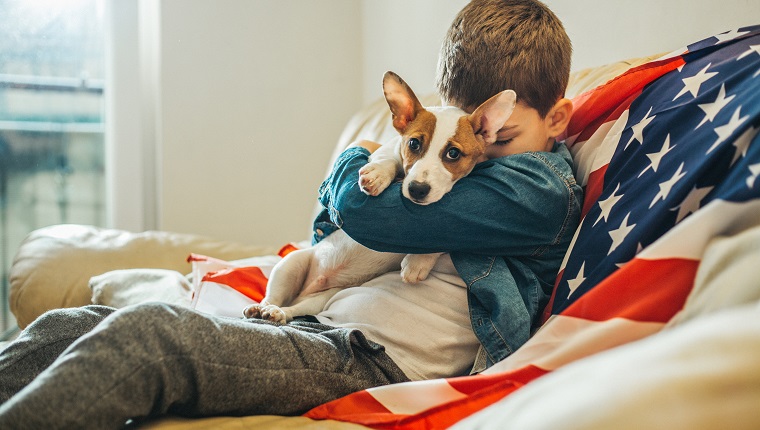
Pet parents should keep their animals inside, secure, and supervised. Just having a pet parent there while the fireworks are going off can have a calming effect on scared pets.
To avoid sending your dogs trembling with fear, hiding in remote parts of the house, or running away, here are a few tips to keep them feeling safe and secure:
- Keep your dog inside, and if possible, don’t leave them alone in the house.
- Drown out the noise of the fireworks as much as possible. Close your windows and turn on the radio or television.
- Make sure your pet has access to their crate or “safe place” during the show. Casually toss them a treat once in a while.
- Act normal! Talk to your dog in an upbeat voice, and go about your usual activities. Coddling or babying isn’t advised: your dog takes cues from you, so if they sense that you’re confident and unafraid, they’ll be more likely to respond in a similar manner.
- Take a trip to the vet. Your vet can advise you on ways to calm your dog and even recommend medication, supplements, or environmental changes that could help.
Not surprisingly, many fireworks-phobic dogs also exhibit fearful behaviors during other times of the year. Lightening and thunderstorms, for example, can be particularly scary.
If you think your pup is experiencing regular anxiety, then you should get help. Your vet, a reputable trainer, or a professional pet behaviorist can help you both work through these issues.
